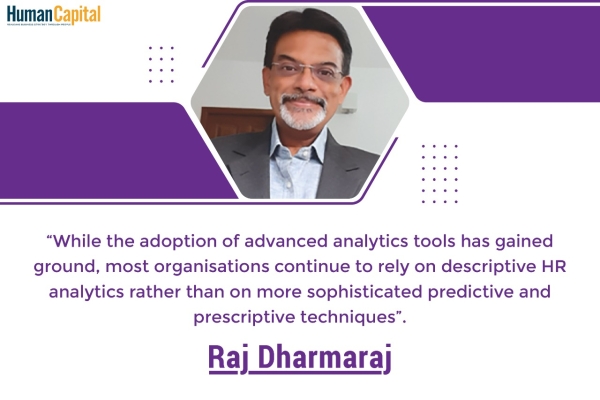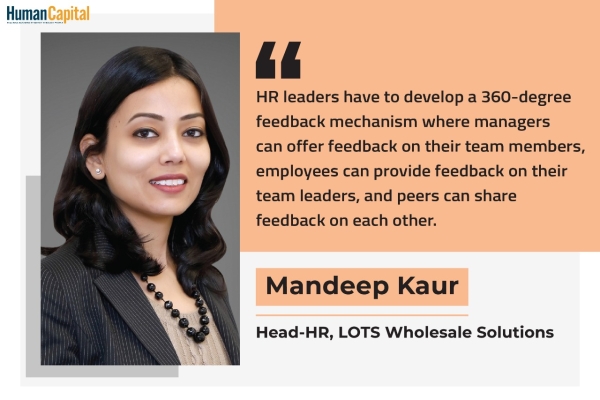Right from the day an employee joins the organisation, a culture of empowerment can bring the best out of the employee, making them think about the organisation as their own.
Online shopping is growing so fast that the global market size is predicted to hit $4 trillion in 2020. Consumer behaviour is the key driver of online sales growth for e-commerce giants, and this behaviour is carefully managed in the technical aspects of “User Experience”. This experience is what makes customers feel empowered. Empowerment is certainly an experience, isn’t it?
Just as with customers, employees feel empowered through consistent experiences – more so in the current scenario where they are continuously adapting to the changes that the pandemic has thrown their way.
Seven Experiences that Indicate Empowerment
If you commonly come across the following scenarios in your organisation, they are indeed indications that employees are empowered across levels.
1.Work Together and Grow Together
Organisational politics is unavoidable and will always exist. However, if politicking exists to the level that growth is being hindered, then it surely needs attention.
Any “Yes” answers to the following questions indicate empowerment in this context:
♦ Does your organisational culture embrace healthy conflict and new viewpoints?
♦ Do leaders explain difficult or sensitive decisions that affect the way people work?
♦ Is getting ahead about how you perform rather than who you know?
♦ Do people help each other with projects, and to learn and grow together?
♦ Do managers spend enough time clarifying goals and giving feedback?
2. Risk-Taking Without Fear
One of my mentors told me that there is no penalty for failure, but there is a penalty for not trying.
This doesn’t mean that all failure should be encouraged. This simply means not punishing individuals who take calculated risks and fail, but rather helping them learn from such experimentation and motivating them to try again.
Jeff Bezos has established a mechanism at Amazon called the ‘Institutional Yes’. The rule is that if someone comes to their manager with an idea, the manager has to say yes. The only way the manager can say no is by writing a two-page long argument explaining their decision to say no and publishing it on the intranet. This approach sets the default response to a new idea at ‘yes’ instead of ‘no’. It also inherently creates a risk-taking culture in which people dare to explore the non-obvious.
Any “Yes” answers to the following questions indicate empowerment in this context:
♦ Has your organisation defined what risk-taking means and where it is encouraged?
♦ Do you feel confident to take risks without fear of punishment for failing?
3. Information Flow and Decision-Making
It’s little wonder that knowledge workers spend an estimated 20% of their workweek searching for internal information or tracking down colleagues who can help with the required information for making decisions.
Often, silos between teams create information flow bottlenecks, leading to poor or delayed decisions.
Also, an organisation where almost every information has to flow up the hierarchy and decisions have to slowly trickle down to the team is not agile or responsive.
Any “Yes” answers to the following questions indicate empowerment in this context:
♦ Do you have access to the right information at the right time so that decisions are possible without much delay?
♦ Do you have the freedom to exercise decision-making authority in certain areas? It could be a decision to reward someone for a job well done or finalise a vendor or fix the rate card.
♦ Is information sharing decentralised?
4. Adaptability to Changing Scenarios
Diversity can be driven with numbers, but inclusion has to be naturally embedded in the organisational culture.
Any “Yes” answers to the following questions indicate empowerment in this context:
♦ If you have moved into a new role or a new location with new colleagues, do you feel welcome, and do you get opportunities to build connections early on?
♦ If there are challenges, do you have the scope to learn quickly and solve these challenges?
♦ Are resources adequately available for you to quickly ramp up to speed?
5. Flexibility
The COVID-19 pandemic has made the benefits of workplace flexibility a no-brainer. Beyond the move of letting employees work anytime and anywhere as long as high-quality work gets done, there are other ways to increase flexibility in the workplace.
Any “Yes” answers to the following questions indicate employee empowerment in this context:
♦ Can you chart your own developmental goals and access learning in whichever way you prefer and from wherever you prefer?
♦ Do you have the flexibility to work on projects that best align with your strengths and your areas of interest (even if it’s not in your current department)?
♦ Instead of being locked into a conventional vertical career ladder, do you have the flexibility to explore your own career path?
♦ Are your flexible choices accepted and respected by your team and manager?
6. Tacit Knowledge Sharing
Most organisations have knowledge management systems to share explicit knowledge. However, the most integral kind of knowledge to organisational survival and creativity is tacit, which, as opposed to explicit knowledge, is difficult to articulate and document.
For instance, if you are in awe of how adroitly your manager handles difficult conversations with clients, then you can be reasonably sure there is tacit knowledge involved.
Any “Yes” answers to the following questions indicate empowerment in this context:
♦ Does your organisation have a supportive culture where most leaders are willing to help prepare the next generation through the sharing of experiences, failures, and mistakes from over the years?
♦ Do you get opportunities to be mentored on the job?
♦ Do leaders in your company take pride in the legacy they can leave behind by sharing knowledge and expertise?
7. Celebration and Replication of Success
Any “Yes” answers to the following questions indicate empowerment in this context:
♦ Are you being celebrated for your achievements as an individual or as a team?
♦ Is there a scope to replicate this success across the organisation?
Empowerment is Not a One-Time Activity
Right from the day an employee joins the organisation, a culture of empowerment can bring the best out of the employee, making them think about the organisation as their own. With multiple generations and cultures in the workforce today, an empowered employee playing on his or her own strengths to achieve organisational success will be an asset that cannot be replaced. Focusing on employee experience could be the best investment to maintain this asset in good shape and form.
Has COVID-19 forever changed the way we live and work?
Trending
-
SBI General Insurance Launches Digital Health Campaign
-
CredR Rolls Out 'Life Happens' Leave For Its Employees
-
Meesho Announces 30-Week Gender-Neutral Parental Leave Policy
-
Microsoft Unveils Tech Resilience Curriculum To Foster An Inclusive Future
-
60% Indian Professionals Looking For Job Change Due To COVID: Survey
-
SpringPeople And Siemens Collaborate For Digital Transformation Push
-
86% Professionals Believe Hybrid Work Is Essential For Work Life Balance: Report
-
Almost 1 In Every 3 People's Personal Life Affected Due To Work Stress
-
Meesho Rolls Out Reset And Recharge Policy For Employees
-
80% Of Talent Leaders & Academics Say Pandemic Changed Skill Needs For Youth: Report
-
Hero Electric Rolls Out 'Hero Care' Program For Employees
-
Human Capital In Collaboration With ASSOCHAM Hosts Virtual Conference
-
IKEA India, Tata STRIVE Collaborate To Create Employability And Entrepreneurship Opportunities
-
SAP India, Microsoft Launch Tech Skilling Program for Young Women
-
DXC Technology, NASSCOM Collaborate For Employability Skills Program
-
Lenskart To Hire Over 2000 Employees Across India By 2022
-
Mindtree Launches Learn-and-Earn Program
-
Tata AIA Extends 'Raksha Ka Teeka' To Its Employees
-
Swadesh Behera Is The New CPO Of Titan
-
NetConnect Global Plans To Recruit 5000 Tech Professionals In India
-
Hubhopper Plans To Hire 60% Of Indian Podcasters By 2022
-
Corporate India Needs More Women In Leadership Roles: Report
-
Aon to Invest $30 Million and Create 10,000 Apprenticeships by 2030
-
Tech Mahindra Launches ‘Gift a Career’ Initiative for Upskilling of Youth
-
40% Women Prefer Flexible Working Options in Post-COVID World: Survey
-
3 out of 4 companies believe they can effectively hire employees virtually: Report
-
Vodafone , CGI and NASSCOM Foundation launch digital skills platform
-
Odisha: Bank, postal employees to deliver cash for elderly, differently-abled persons
-
Skill India launches AI-based digital platform for "Skilled Workforce"
-
Hiring activity declines 6.73% in first quarter: Survey
-
70% startups impacted by COVID-19 pandemic
-
Bajaj Allianz Life ropes in Santanu Banerjee as CHRO
-
Over 70 Percent MSMEs look at cutting jobs to sustain businesses
-
93 Per Cent employees stressed about returning to office post-lockdown
-
Johnson & Johnson India announces family benefits for same gender partners
-
Indian firms turning friendly towards working mothers
-
Welspun India names Rajendra Mehta as new CHRO
-
Wipro partners with NASSCOM to launch Future Skills platform



Human Capital is niche media organisation for HR and Corporate. Our aim is to create an outstanding user experience for all our clients, readers, employers and employees through inspiring, industry-leading content pieces in the form of case studies, analysis, expert reports, authored articles and blogs. We cover topics such as talent acquisition, learning and development, diversity and inclusion, leadership, compensation, recruitment and many more.
Subscribe Now













































Comment